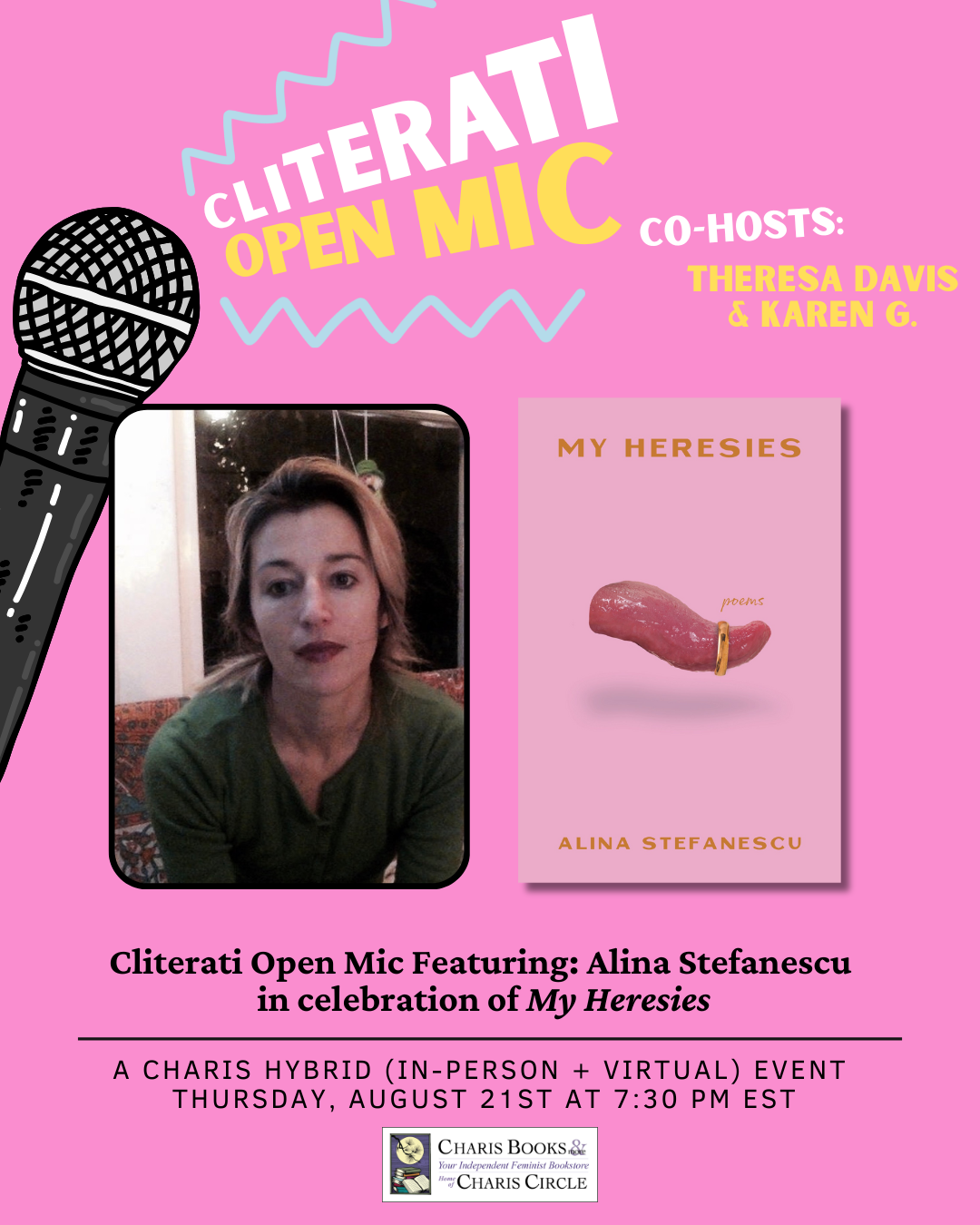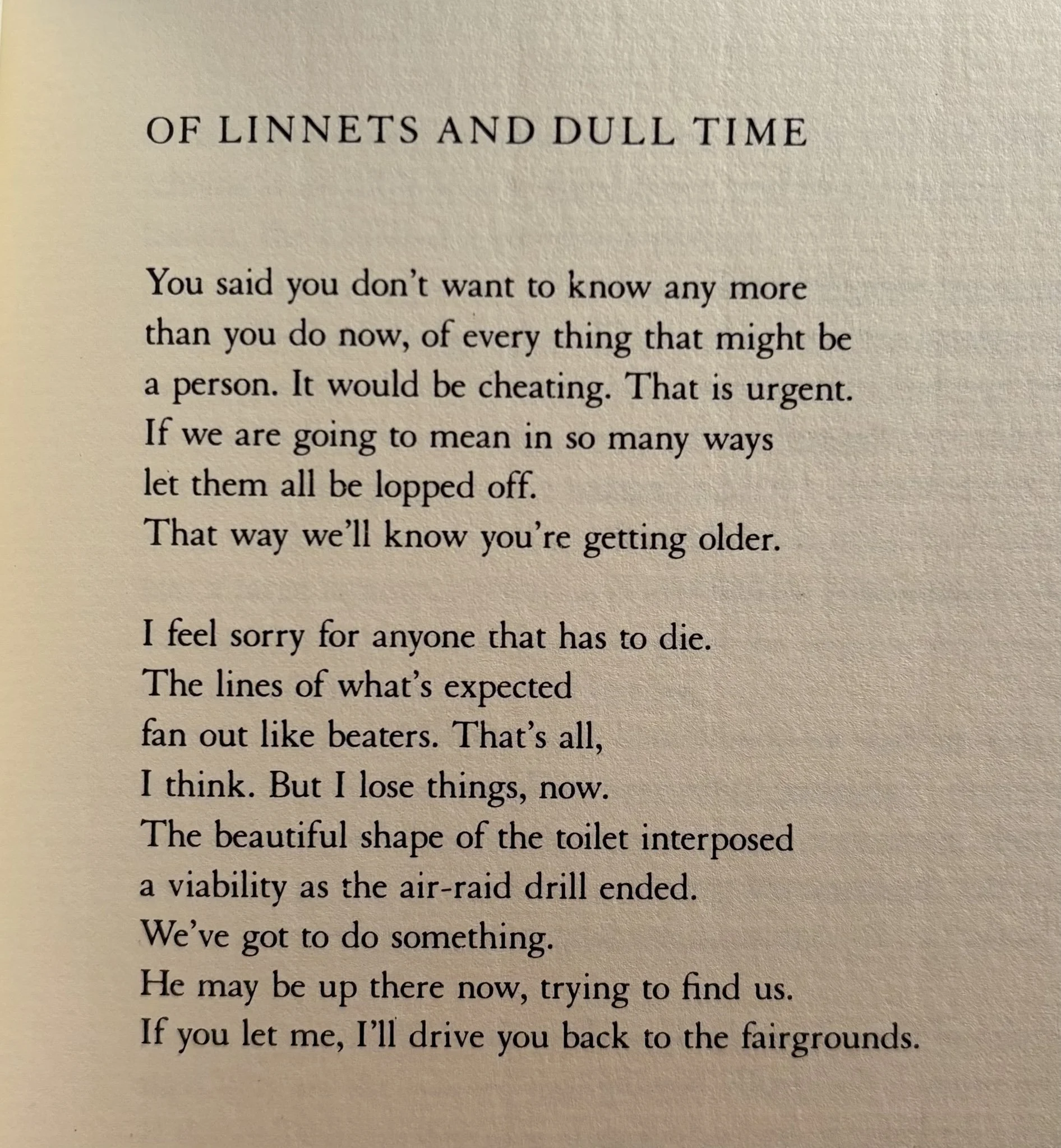Stefanescu’s mirror is a thing peopled with a loneliness that impregnates everyone twice.
Things are going to slide (slide) in all directions
Won't be nothing (won't be)
Nothing you can measure anymore
The blizzard, the blizzard of the world
Has crossed the threshold
And it has overturned
The order of the soul
When they said (they said) repent (repent), repent (repent)
I wonder what they meant
— L. Cohen
Today I walked until my legs hurt and felt grateful for it . . .
In a letter to Sunny dated May 5, 1934, Sam Beckett said that he was “fond of this summertime because darkness and all its bad things are at least being postponed thereby.” Then, in a sort of lapse, Beckett added one of the truest comments on his writing, telling Sunny: “I am a Manichaean as far as darkness is concerned.”
No one is made crazy through writing, but rather becomes crazy for the same reasons as those who do not write, namely the denial of their rights, power, naked brutality, the loss of their dignity and the threat to their very existence. And this threat can be found not only in war, not just in times of naked power, or the domineering need to survive, but rather before and after, i.e. in times of peace....
— Ingeborg Bachmann, drafts for acceptance speech for Georg Büchner Prize written in the summer of 1964
Between trumpet vines and the purple kudzu flowers that often go unnoticed, I would love to see you in Tuscaloosa or Atlanta this month, or the next.
You'll see your woman hanging upside down
Her features covered by her fallen gown
And all the lousy little poets coming round
Trying to sound like Charlie Manson
Yeah the white man dancing
Grateful that the Refaat Mobile Library will be in Atlanta— I can’t support their mission enough, and hope that you consider doing the same.
Give me back the Berlin wall
Give me Stalin and St. Paul
Give me Christ
Or give me Hiroshima
Trumpet vines on my relentless Red Mountain hike today.
The requisite John Ashbery.
“Anyone who has been in love knows better. Love can be quite miserable. It destroys families and conventions and it refuses to be controlled or tamed. This instrumental approach to love where the end-goal is happiness reconstructs love for the industrial age and labor economies. What the sociologist Georges Simmel called “the invasion of the domain of love by the teleological category” is also at play in My Heresies.”
Grateful to Gabriela Denise Frank for a conversation that was a light in my life a few months ago— and to The Rumpus for publishing it.
When you take off yr boots at 3 am while hanging out with friends on the porch— and then discover those boots with a dusting of flowers in the morning.
Everything falls but nothing obliterates the known world as viciously as losing the ability to describe the fall. Speechlessness is hard to describe. I’ve never lost words like this. . . . Never lost the capacity to describe what I see and feel as I fall . . . Never lost my appetite for books. Dear humans, I can’t walk fast enough or far enough. Small things, small comforts, as Ingeborg Bachmann noted in her essay, “What Good Are Poems”: “The playing field is language, and its borders are the borders of what we gaze on without question, that which is divulged and precisely imagined, experienced in pain, and in happiness celebrated and praised — namely the world."






